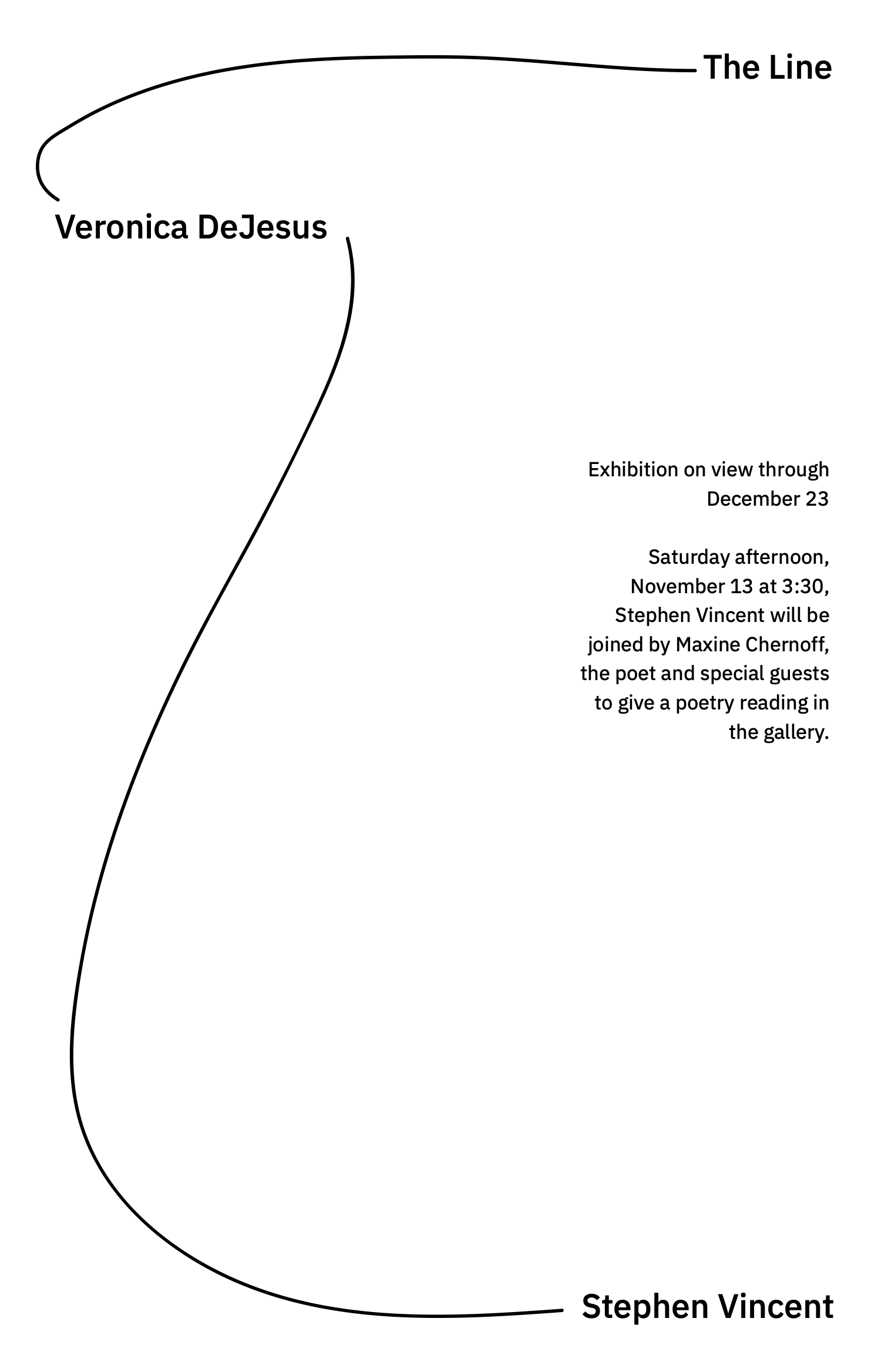1275 Minnesota St /
Anglim/Trimble
Veronica DeJesus & Stephen Vincent: The Line
Reception | November 6, 2021 | 4–7 pm
Poetry reading | November 6, 2021 | 3:30 pm
The line is the foundation of all image-making and is what transforms the ideas of the linemaker into something that becomes part of the material world. In the downstairs gallery, Anglim/Trimble pair two artists who use the line to connect the interior with the exterior: Veronica DeJesus and Stephen Vincent. Both take to paper and pen as - arguably the most humble of all mediums - to explore and transform the blank page into something elegant and lyrical. The difference between the two artists lies in their use of the medium and intentions. Vincent’s haptic drawings emerge from close listening and what he calls “a conversation with paper.” DeJesus’ line contemplates her own personal story and follows how relationships have played out in her life narrative.
Stephen Vincent’s drawings were done during the COVID lockdown. The linework is a sensuous and physical apprehension of his immediate surroundings, whether that is at a poetry reading, listening to music or a basketball game. The latest body of work is not site-specific; rather the drawings are hermetic explorations of an interior life during a time when we were all confined inside. With pens he works in both color and black ink. Influenced by the weavings of Anni Albers, the lyric drawings emerge in response to a pencil foundation of loosely structured grids. The exhibit includes a few of his accordion fold books. “Pilgrim” unfolds into an ecclesiastic journey . A longtime poet and publisher, Vincent’s haptic process is a calligraphic mode of liberating syntax and convention from language, a way to “draw” out a response.
Veronica DeJesus’s drawings and animations also come from an internal place. As she navigates her childhood memories and the emotions associated with them, DeJesus uses the line to contemplate the relationships of her family, friends, and other figures who have left a mark on her life. Her drawings become an interpretive series of family portraits in which she ponders on the high and lows of having lived a transient life, experienced loss and joy, and reflected upon different perspectives and vantage points. For DeJesus, drawing is a way to fill the negative, empty spaces leftover as memories and inscribe a new space where a new story can flourish.
